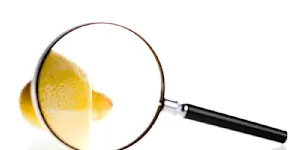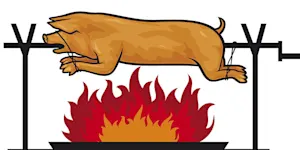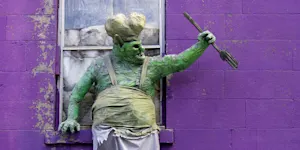What Makes This Word Tick
Askance is a word brimming with intrigue and a touch of suspicion. It's all about those sideways glances and the feeling that something might be amiss. Used to describe looks or attitudes, it paints a picture of doubt or disapproval without needing a single syllable more. One can almost visualize the raised eyebrow accompanying it.
If Askance Were a Person…
Imagine a detective in a classic noir film, constantly wary and slightly cynical. This person rarely takes things at face value, always ready to delve deeper into what lies beneath. With a penchant for mystery and an instinct for uncovering truths, they view the world with curiosity but never without a hint of skepticism.
How This Word Has Changed Over Time
Historically, askance hasn't drifted far from its roots. It's consistently been tied to notions of skepticism and doubt. While now modernized in its application, the essence of askance remains unchanged: a keen side-eye at anything that seems out of place or questionable.
Old Sayings and Proverbs That Use Askance
While askance itself isn’t the star of many proverbs, the sentiment certainly is. For instance, "Take it with a grain of salt" suggests a similar skepticism that might very well be accompanied by an askance glance. It’s about reserving judgment and taking things cautiously.
Surprising Facts About Askance
Did you know that askance can imply both a physical look and a metaphorical attitude? It captures the fleeting moment of doubt as much as an enduring air of suspicion. Its versatility makes it beloved by playwrights and novelists alike, often used to build tension or comical misunderstanding.
Out and About With This Word
In conversation, you might hear askance when someone is describing reactions loaded with doubt. Ever notice how often people glance askance at tabloid headlines? It's the ideal word for instances when a simple facial expression says more than paragraphs could.
Pop Culture Moments Where Askance Was Used
In films, characters often shoot askance looks when something is afoot. Think of all the classic courtroom dramas where a cunning remark is met with an askance glance. It’s in these moments that askance gestures loom large, adding layers of complexity and intrigue.
The Word in Literature
In literature, askance offers depth, revealing character motives and hidden conflicts with just a glance. From Victorian novels to modern thrillers, authors use askance to depict a moment when everything might not be as it seems, drawing readers into mysteries and unspoken tensions.
Moments in History with Askance
Consider the signing of the infamous Treaty of Versailles or perhaps the John F. Kennedy and Richard Nixon televised debates. The word askance could describe the atmosphere of doubt and skepticism that pervaded these historical moments, highlighting the cautious reception of unfolding events.
This Word Around the World
In French, you'd say "en coin" to convey a similar idea, and in German, "schief anschauen" could do the trick. The sentiment transcends language—wherever there's reason to doubt, an askance look is not far behind, making it a universal gesture even if the word varies.
Where Does It Come From?
Askance may have old Italian roots, likely traced back to the word "asquarciare," meaning to slant. This origin makes sense, given the word's emphasis on indirect glances and perspectives. It's a curious lineage for a word that’s all about curiosity itself.
How People Misuse This Word
Sometimes people use askance simply to mean "looking sideways," but it inherently carries doubt or suspicion. Using it without the underlying skepticism misses the nuanced, critical tone that it conveys. It's not just a look; it’s a whole attitude.
Words It’s Often Confused With
Askew: Often mixed up with askance, askew refers to being crooked or off-center, without the dubious attitude.
Sideways: A broader term that doesn't necessarily include the skepticism that askance is known for.
Skeptical: While related, skeptical refers to an overall demeanor rather than a specific type of glance or look.
Additional Synonyms and Antonyms
Synonyms for askance could include "distrustfully" or "suspiciously." Antonyms might be "trustfully" or "confidently," which lack the doubt and suspicion inherent in an askance glance.
Want to Try It Out in a Sentence?
"When the new neighbor claimed to be a concert pianist without ever owning a piano, the community began to look askance at his stories." Here, askance captures a collective skepticism, inviting readers to question and remain suitably curious.
















